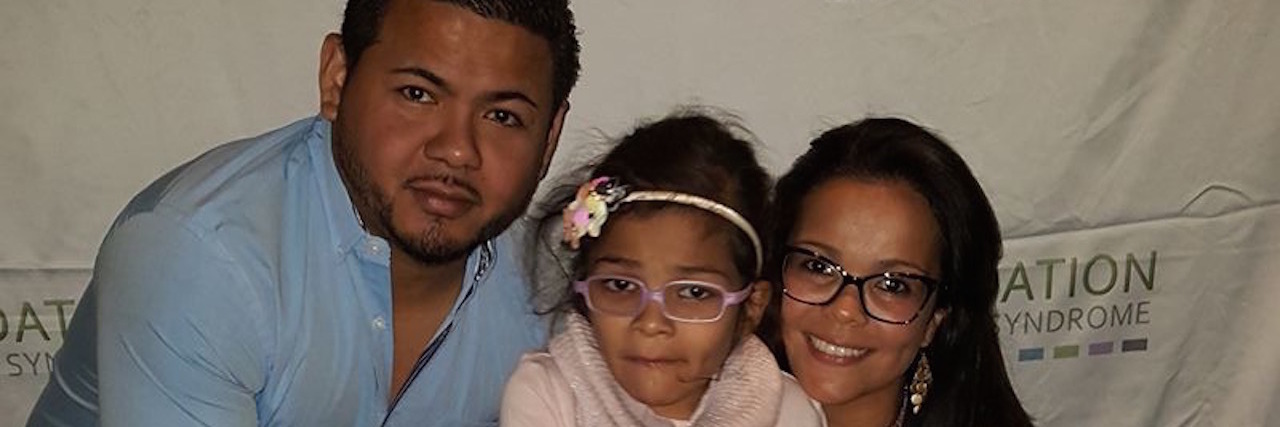As the mother of a child with Lennox-Gastaut syndrome (LGS), there are many things I wish I had known after the diagnosis. I hope this list will help other parents who are starting out on their LGS journey alongside their children.
1. You are not alone. When my daughter Isabela was diagnosed with LGS, it was very overwhelming and scary. It’s not everyday your world is shattered into pieces when you learn your loved one has a condition with no cure. Finding others going through this can be a big help! When I found the LGS Foundation, I felt like a part of a family– a family that was able to understand my struggles. Knowing you’re not alone helps cushion the roller coaster ride.
2. Take one day at a time. It sounds basic, but trust me, you will need reminders. This is extremely important for your sanity. This roller coaster ride hast its ups and downs. Worrying about the future will add unnecessary stress to your life, when you have enough as it is. Never lose hope and never give up on your loved one with LGS.
3. You are your child’s best advocate and voice. No matter what, always know you have the last say for medical, therapy, and school decisions. You know your child best, and therefore, even if you lack a medial degree, you are an expert when it comes to your loved one. You are more than qualified to make the best decision for your child with LGS. Always follow your instinct and weigh in quality of life in any decision you make. LGS is very complex and every case is different.
4. Find your new “normal.” Yes, it takes time to digest and embrace any diagnosis, let alone an LGS one. You will need to make adjustments to your daily living. You will be learning all this medical jargon that doctors, health care providers, and schools use. This will help you to better understand when information is being shared with you. In the beginning it will be confusing, but trust me — you got this. You will become a pro at managing situations that other parents would think impossible. Remember, with this new “normal,” never forget to enjoy life.
5. Enjoy the “inch-stones.” It was very hard for us when our Isabela never reached the milestones for neurotypical children. My heart quenched when I read those markers of what your child is “supposed to be doing” at certain points in life. This is why I came up with celebrating her “inch-stones” because any improvement is improvement. We celebrate the little things like responding to her name, smiling, feeding herself finger foods, and giving high fives! LGS has robbed us of many milestones, but we learned to appreciate her “inch-stones.” Celebrating your loved one’s accomplishments is key during this tough road.
6. Take time for yourself. “You can’t pour from an empty cup.” Thi saying is especially true for parents of medically complex children. Try and take care of yourself first. I tell my self this pretty frequently. Life can get busy when caring for a loved one with LGS. Between doctor appointments, therapy sessions, and school meetings, you are pretty much left with not time for you. You have to make time, even if it’s for a cup of coffee, a walk, or reading a book. Trust me, your body will thank you and you will feel refreshed.
7. Educate and raise awareness. Educating family, friends, and community its pivotal for success. Knowledge is power! I have found Isabela is better understood after explaining what LGS is and how we deal with it on a daily basis. Being open and willing to educate and bring awareness to the condition will open many doors for you and your loved one with LGS. Knowing my family and friends understand and cater to her needs at family gatherings and community activities has been a plus. If you educate others, you are helping to make your family more at ease, and in return, helping to eliminate the stigma with LGS and epilepsy.
To learn more about epilepsy and related conditions, visit Living Well With Epilepsy.
This story originally appeared on Living Well With Epilepsy

